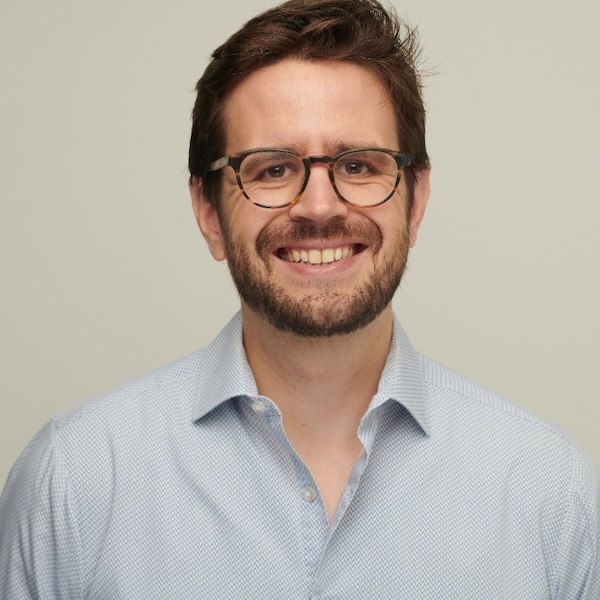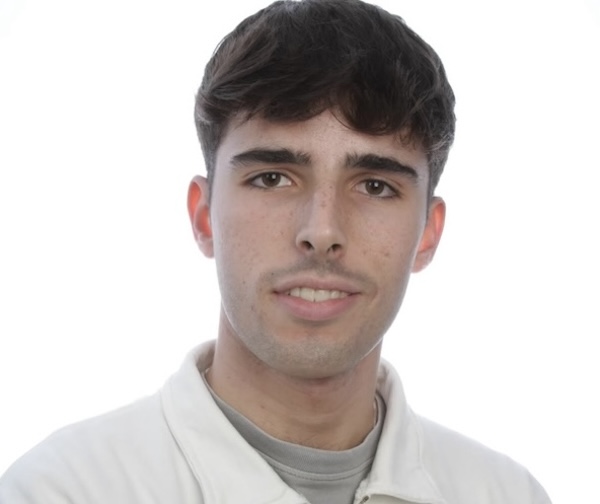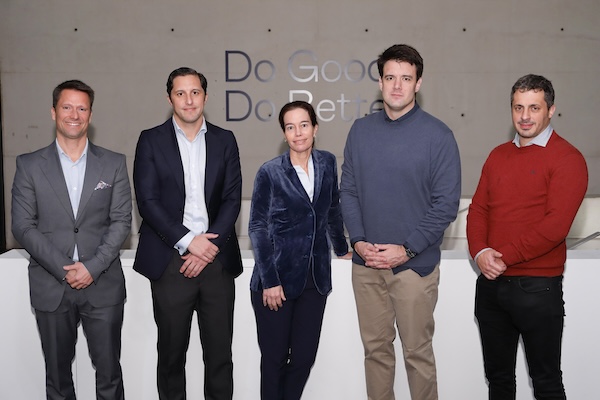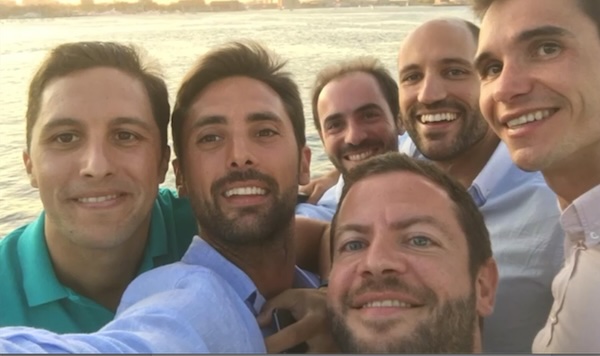We spoke with him about his involvement in the board of directors of the Esade Alumni New York Chapter after the recent Esade Alumni North America Annual Meeting and his professional development in the city
Ray Carbonell, business consultant, startup advisor and board member of Qnary, was a key player in the company’s growth and fundraising and played an essential role in its finances, sales, and global expansion.
-As a member of the board of directors, what was your initial reason for joining the New York Chapter and how has your vision of the value and mission of this community evolved?
 My initial motivation for joining the Esade Alumni New York Chapter sprang from my previous experience in the Chicago Chapter, which I joined when I came to the United States in 2010. Even though it was a small group at that time, it was essential in helping me integrate professionally and personally into a new city without my own network of contacts. That experience showed me the real value of belonging to a community like Esade Alumni, especially when you are far from home.
My initial motivation for joining the Esade Alumni New York Chapter sprang from my previous experience in the Chicago Chapter, which I joined when I came to the United States in 2010. Even though it was a small group at that time, it was essential in helping me integrate professionally and personally into a new city without my own network of contacts. That experience showed me the real value of belonging to a community like Esade Alumni, especially when you are far from home.
When I reached New York, I immediately joined the local chapter. Over the years, my vision has evolved: what began as a quest for support transformed into an active commitment to give back. Today, as a member of the board of directors, I deeply value the role played by the New York Chapter as a platform for connection, growth, and collaboration. Plus, being part of this community makes you feel closer to home, surrounded by people with shared experiences and values. I am proud to be able to support recent graduates and professionals who are taking their first steps in this city, just as I did at one point. Being able to share experiences, offer mentorship, and build community is unquestionably one of the most meaningful contributions we can make as alumni.
- What do you think are the main challenges the Chapter is facing today to remain relevant and keep up the engagement of its members in a city as dynamic as New York?
One of the main challenges the New York Chapter is currently facing is striking the right balance between the different types of events we hold. In such a dynamic, demanding city as this one, it is essential to offer an appealing mix of activities: from social gatherings that foster closeness and informal networking to panels on important topics and first-rate speakers to add professional value.
Something that I believe is crucial in keeping up the chapter’s relevancy and engagement is strengthening online connection and communication between events. In a city like New York, where time is limited and calendars are constantly shifting, having active digital spaces allows the community to stay united, share resources, exchange ideas, and continue interacting beyond the in-person gatherings. Fostering this continuity is essential in consolidating a truly dynamic and commited alumni network.
Furthermore, for us as board members, listening and adapting to alumni’s feedback is essential. Their ideas, suggestions, and expectations enable us to constantly improve and make sure that the chapter evolves in line with our community’s real needs. This closeness with members is what enables us to continue to build a strong, relevant, and sustainable community.
- What opportunities for the development and growth of the Esade Alumni community does this location offer?
New York offers unique opportunities for the development and growth of the Esade Alumni community primarily because it is one of the most important business hubs in the world. The city is the home to a diverse, dynamic ecosystem, with the presence of leading companies in virtually all sectors, which really makes it easy to connect with influential organizations where many alumni are already developing their careers.
Plus, it also offers unparalleled access to talent. New York attracts world-class professionals with global profiles, which enables us to enrich our network and generate both professional and personal synergies. This environment makes it possible to create high-impact initiatives, hold prominent events, and create a vibrant, connected community aligned with Esade’s values and with international outreach.
One of the most important factors that allowed me to grow professionally from being the first employee to becoming the CEO of Qnary was the ability to build and lead an exceptional team
- Focusing now on your career, going from being the first employee to the CEO of Qnary in seven years is impressive. What do you think were the most important factors that enabled you to be so successful?
One of the most important factors that enabled me to grow professionally from being the first employee to becoming the CEO of Qnary was the ability to build and lead an exceptional team. From the very start, I knew that the talent, commitment, and human quality of the people around you are essential in scaling up a company. I focused on creating a collaborative work culture with people who shared the company’s vision and values.
Another key factor was our ability to adapt to change. Just like in any startup, we faced times of extraordinary uncertainty and had to make difficult decisions. Knowing how to navigate the highs and lows, keeping up the team’s resilience, and continuing to move forward even at the most challenging times were crucial.
And most importantly, we always kept our sights set on Qnary’s vision. Being clear about our purpose and where we wanted to go enabled us to make sensible strategic decisions, prioritize well, and not diverge from our pathway, even when the environment was volatile. That combination of team, adaptability, and vision were what really made this journey possible.
- Your career includes roles like Investment Analyst at firms like GT Capital Advisors and Manager of Deal Sourcing at Blackmore Partners. What key lessons have you been able to apply in your current role?
My roles at GT Capital Advisors and Blackmore Partners were my first professional experiences in the United States as a recent graduate just after arriving in the country. Beyond the technical aspects of analysis and investment, those stages were essential in adapting to the work culture of the United States, understanding how business is done here, and especially developing key skills that are still essential in my day-to-day life today.
I learned how to communicate with clarity and self-assurance, how to sell ideas, and how to build trusting relationships in a highly competitive environment. But perhaps the most important lesson was gaining self-confidence. Those experiences showed me that with effort and perseverance, I was able to grow professionally in a demanding new market. That foundation was crucial in taking the step to entrepreneurship and building Qnary from scratch.
- What are the key differences you’ve found in the business ecosystems in Europe and the USA?
One of the most noticeable differences I found in the business ecosystems in Europe and the United States was the size and scale of the market. In the USA, the volume of opportunities is significantly larger, which enables you to think and act on a large scale from very early stages. That sheer size of the market also promotes a more ambitious mindset geared at quick growth.
Another key difference is the speed at which business is done. In the United States, decisions are made more quickly, and there is a clear willingness to try, repeat, and advance without as many intermediate processes. That speed may be a challenge at first, but it’s also highly stimulating and effective in entrepreneurship.
Plus, I was very struck by how open the US culture is to innovation. There is a much more receptive attitude towards change, calculated risk, and new ideas, even if they come from young people or those outside the system. This openness generates an environment where it is possible to build, make mistakes, and try again, which is essential for any entrepreneur.

 My initial motivation for joining the Esade Alumni New York Chapter sprang from my previous experience in the Chicago Chapter, which I joined when I came to the United States in 2010. Even though it was a small group at that time, it was essential in helping me integrate professionally and personally into a new city without my own network of contacts. That experience showed me the real value of belonging to a community like Esade Alumni, especially when you are far from home.
My initial motivation for joining the Esade Alumni New York Chapter sprang from my previous experience in the Chicago Chapter, which I joined when I came to the United States in 2010. Even though it was a small group at that time, it was essential in helping me integrate professionally and personally into a new city without my own network of contacts. That experience showed me the real value of belonging to a community like Esade Alumni, especially when you are far from home.































